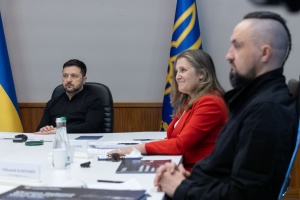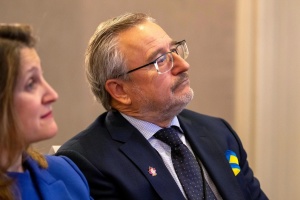
Platform for Sustainable Development of Coal Towns of Donetsk region
In May 2019, we - the mayors of seven coal dependent towns of Donetsk region, three NGOs from the region and Donetsk Chamber of Commerce and Industry - established a Platform for Sustainable Development of Coal Towns.
We understand the global trend towards decarbonization, of which Ukraine is also a part of. Our country’s ratification of the Paris Climate Agreement in 2016, signing of the energy partnership between Ukraine and Germany in August 2020 and public statements at this year's EU-Ukraine summit on our country's accession to the European Green Deal initiative indicate the inevitable transformation of the energy sector and gradual coal phase-out.
This is why we see the main goal of our Platform as preparation, development and implementation of a common vision for the transformation of our mining region.
The Ukrainian government also understands the complexity and multifaceted nature of future transformation processes, as evidenced by the establishment in May 2020 of the Coordination Center for the Transformation of Coal Regions.
We welcome and support the establishment of this body and the presentation of the Concept of the National Program for the Transformation of Coal Regions of Ukraine until 2027. These steps confirm the seriousness of the intentions of the Ukrainian authorities and the understanding of the need for early planning of the energy transition, with special emphasis on the socio-economic development of coal mining towns.
For our part, for the last two years we, as members of the Platform for Sustainable Development, have been actively studying global trends in this field, in particular through exchanges with German coal towns and meetings with the European Commission’s Coal Regions in Transition Platform in Brussels.
As a result, we are currently developing joint projects to reform educational programs and local educational institutions, to install and use renewable energy sources in municipal buildings, and mine water reusage projects. Together with international partners, this year we also began the process of creating a joint strategy for the economic transformation of the coal towns of Donetsk region, which are part of the Platform.
Based on our existing experience, we are convinced that a just transition of coal mining towns is only possible under the following conditions:
1. Cooperation with coal towns and regions from the very beginning.
Local needs, interests and responsibilities of coal communities and regions should come first. The development of strategies and projects should be accompanied by the expertise of specialized regional development and planning bodies. This is the lesson of the German experience of establishing a dialogue with all stakeholders in coal mining communities in North Rhine-Westphalia. The population and local organizations must take an active part in the dialogue on the future of their communities. Government programs, projects, etc. must meet these needs and local dialogue’s conclusions.
In this spirit, the inclusion of representatives of local coal communities - the mayors of Vuhledar, Myrnohrad and the head of the Toretsk Civil-Military Administration - in the Coordination Center for the Transformation of Coal Regions is a positive signal. The next step, in our opinion, is concrete, joint planning of the analysis of local needs to ensure that national programs meet them, as well as the establishment of regional development agencies for coal mining regions.
2. Clear planning and setting specific dates for the closure of unprofitable coal mines and coal phase-out.
The lack of a clear understanding of the future of our own coal enterprises creates a major obstacle to planning the transformation of specific towns and the gradual restructuring of local economies. Only conscious planning with the involvement of local authorities and the population will help the general acceptance of the inevitable energy translation.
3. Implementation of pilot projects on the ground and diversification of the local economy
To diversify the economy special programs, funds and conditions should be created that will promote the development of small and medium-sized businesses in mining towns and regions. Without pilot projects for the redevelopment of coal mining towns in the coming years it is impossible to create a full-fledged national plan for a just transition. Those projects will require the support of the state and international organizations. We are also convinced that the towns participating in the pilot projects should be selected through a transparent open competition and the positive effect of the projects should be felt across the whole region and not just individual communities.
4. Development and reforming of education in the regions.
The development of education may include the creation of new educational institutions, research and innovation centers at the regional and local levels, as well as changes in educational programs and the re-profiling of existing vocational schools.
With the future closure of coal mining enterprises, mining professions will lose their attractiveness and relevance. The experience of different towns in Germany and Eastern Europe (for example, Poland) can be an example to follow, as the regions have managed to become powerful centers of education and innovation.
5. Retraining and social protection of dismissed miners.
Special employment and retraining programs will help ease tensions among locals who are afraid of losing their jobs, income and social benefits. Such programs should take into account the specifics of each town, so local experts should be involved to adequately assess needs and other specifics.
On the other hand, it is necessary to create financial tools to enact an early retirement of miners in the current pension system.
6. Environmental safety is the responsibility of all actors
The operation of mines and especially their closure cause and exacerbate a number of environmental problems associated with the contamination of surface and underground water reservoirs, soil, continued process of mine water pumping and more. The solution to these problems should be planned and implemented in advance with the participation of all actors responsible for the operation of coal mining enterprises and community development: the state, local governments, as well as private companies. European and German experience testifies to the need to create special environmental funds with the participation of coal companies.
We call on all stakeholders to unite around a just transition of coal regions, as this process will include many aspects, from energy transition and economic diversification to the restructuring of educational institutions and social and environmental security.
Mayor of Dobropillia Andriy Aksionov
Mayor of Myrnohrad Oleksandr Brykalov
Mayor of Novohrodivka Lyudmila Biletskaya
Acting Mayor of Pokrovsk Oleksiy Trebushkin
Mayor of Selydove Viktor Remizov
Head of the Toretsk Civil-Military Administration Vasyl Chynchyk
Head of Vuhledar Amalgamated Community Andriy Silich
President of the Donetsk Chamber of Commerce and Industry Maksim Anufriev
NGO "Development Agency of Vugledar" Fedir Sorokin
NGO "Dobropillia Youth Center “DOBRO” Volodymyr Oros
NGO "Platform of Initiatives “MOVE” (Novohrodivka) Denys Shylenko




